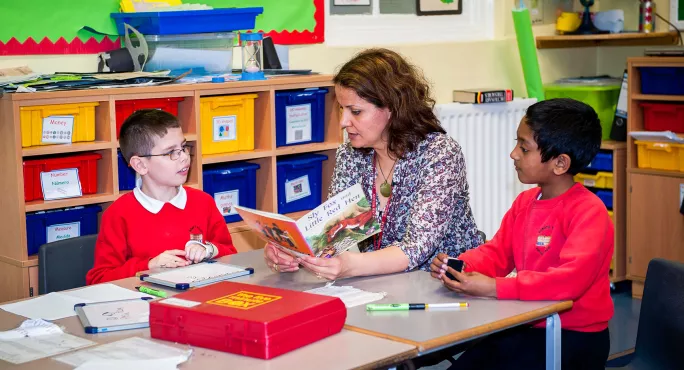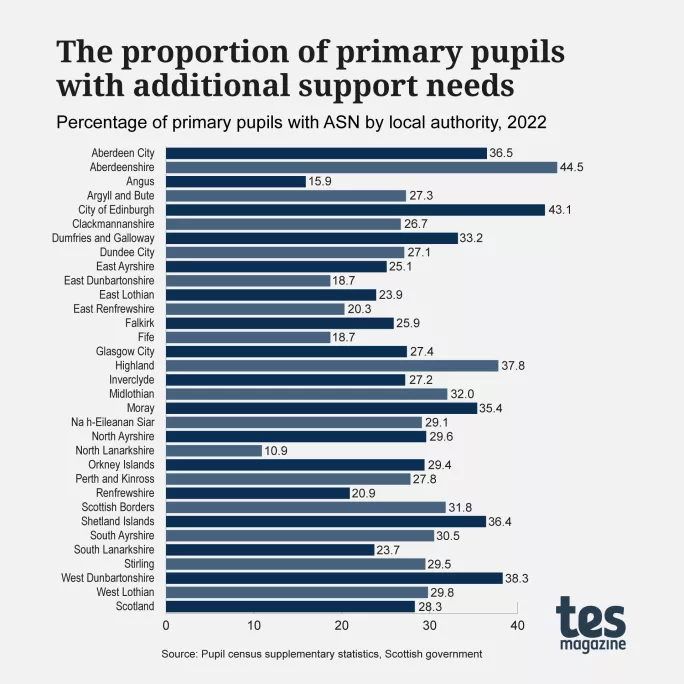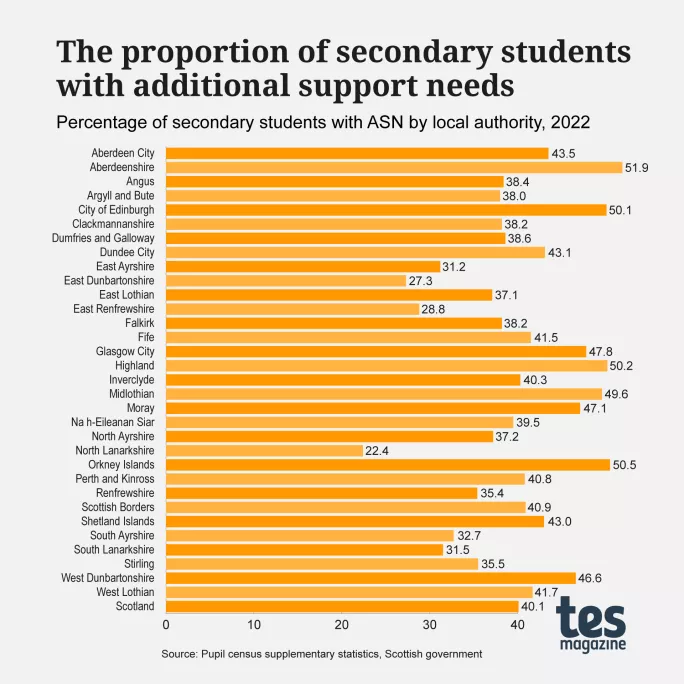
Get the best experience in our app
Enjoy offline reading, category favourites, and instant updates - right from your pocket.
How many pupils in your area have additional support needs?
New data shows that over half of secondary students are recorded as having an identified additional support need in some local authority areas – but in one council, the figure is less than a quarter
Share
How many pupils in your area have additional support needs?
https://www.tes.com/magazine/news/general/asn-schools-how-many-pupils-additional-support-needs






